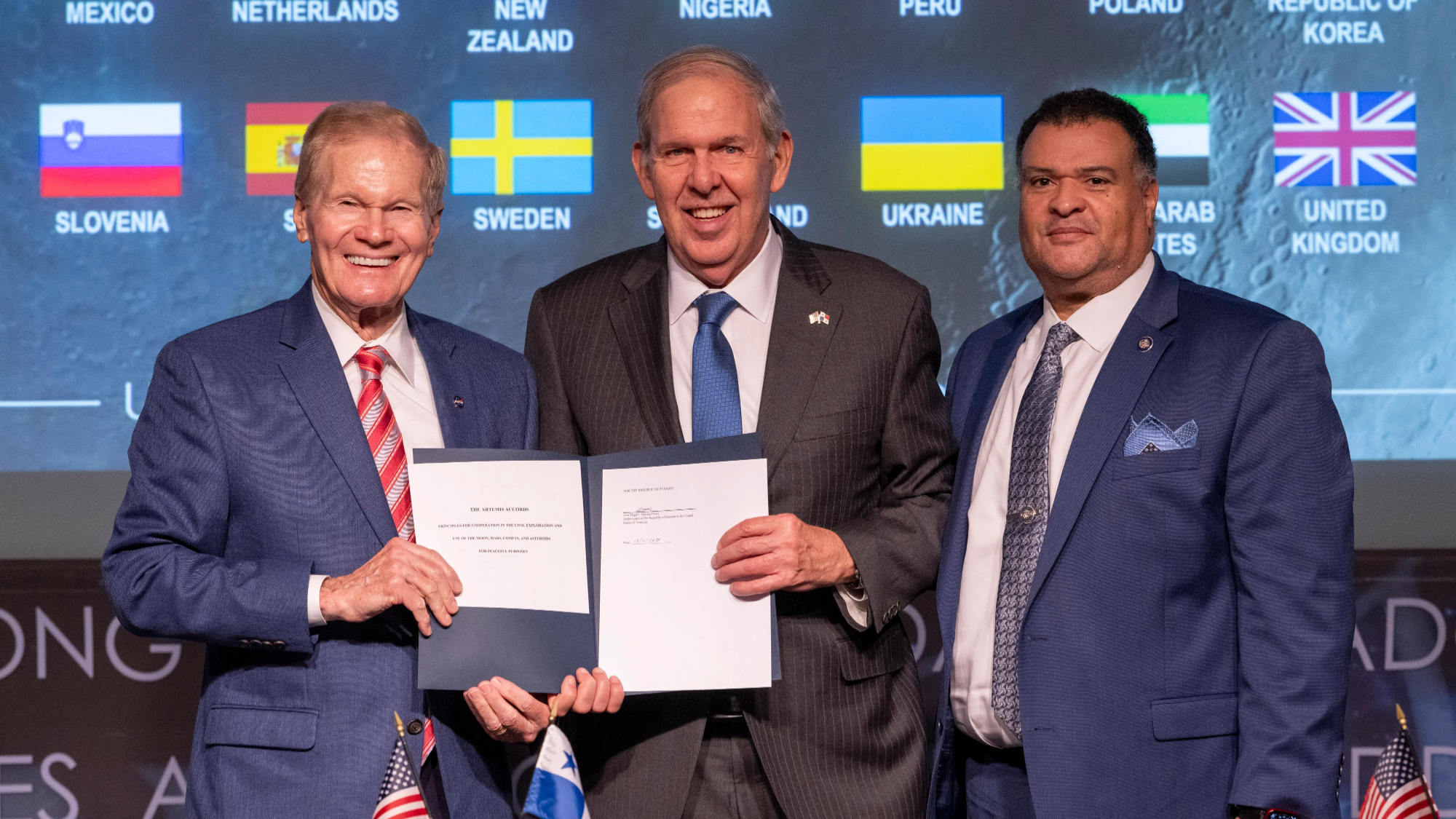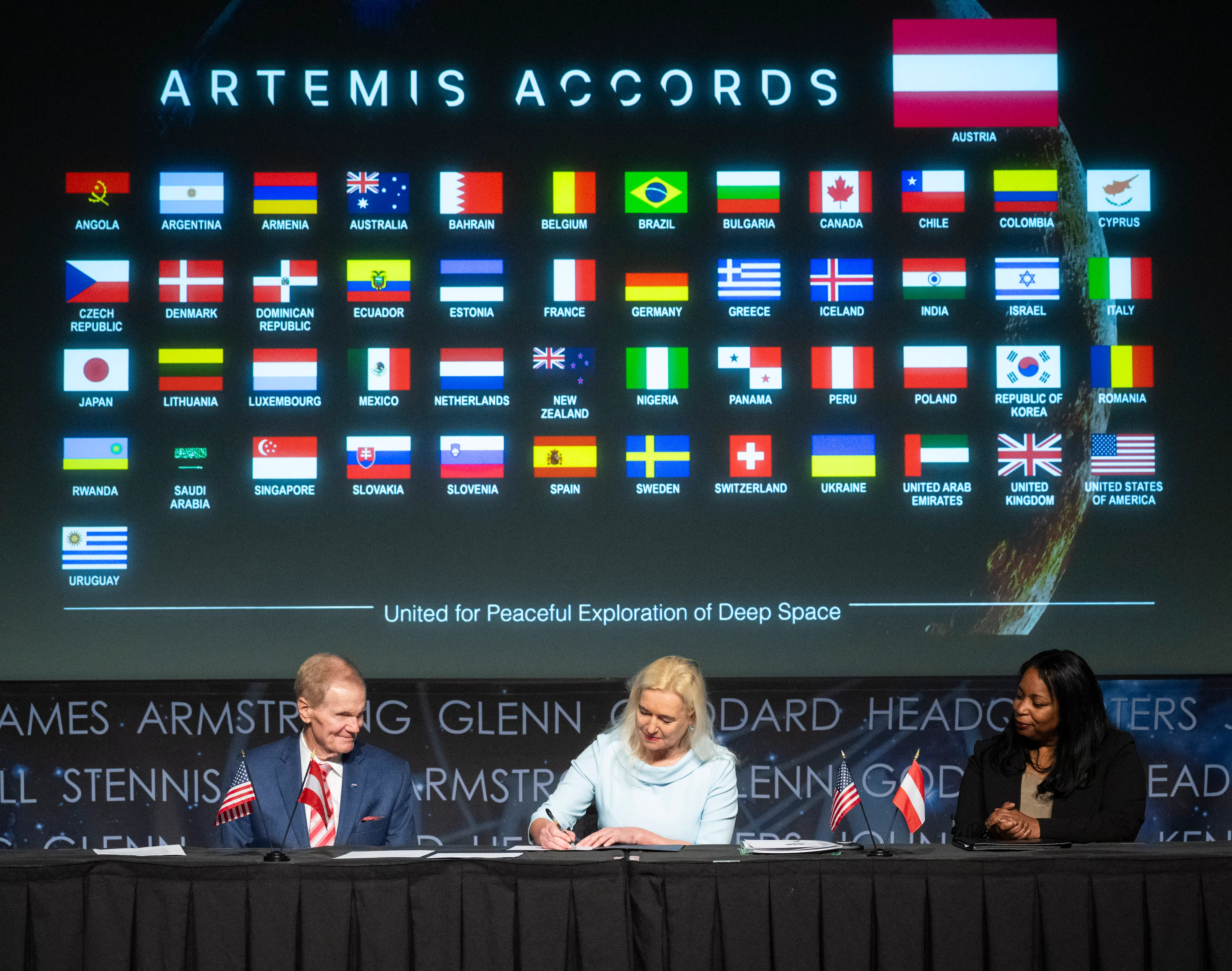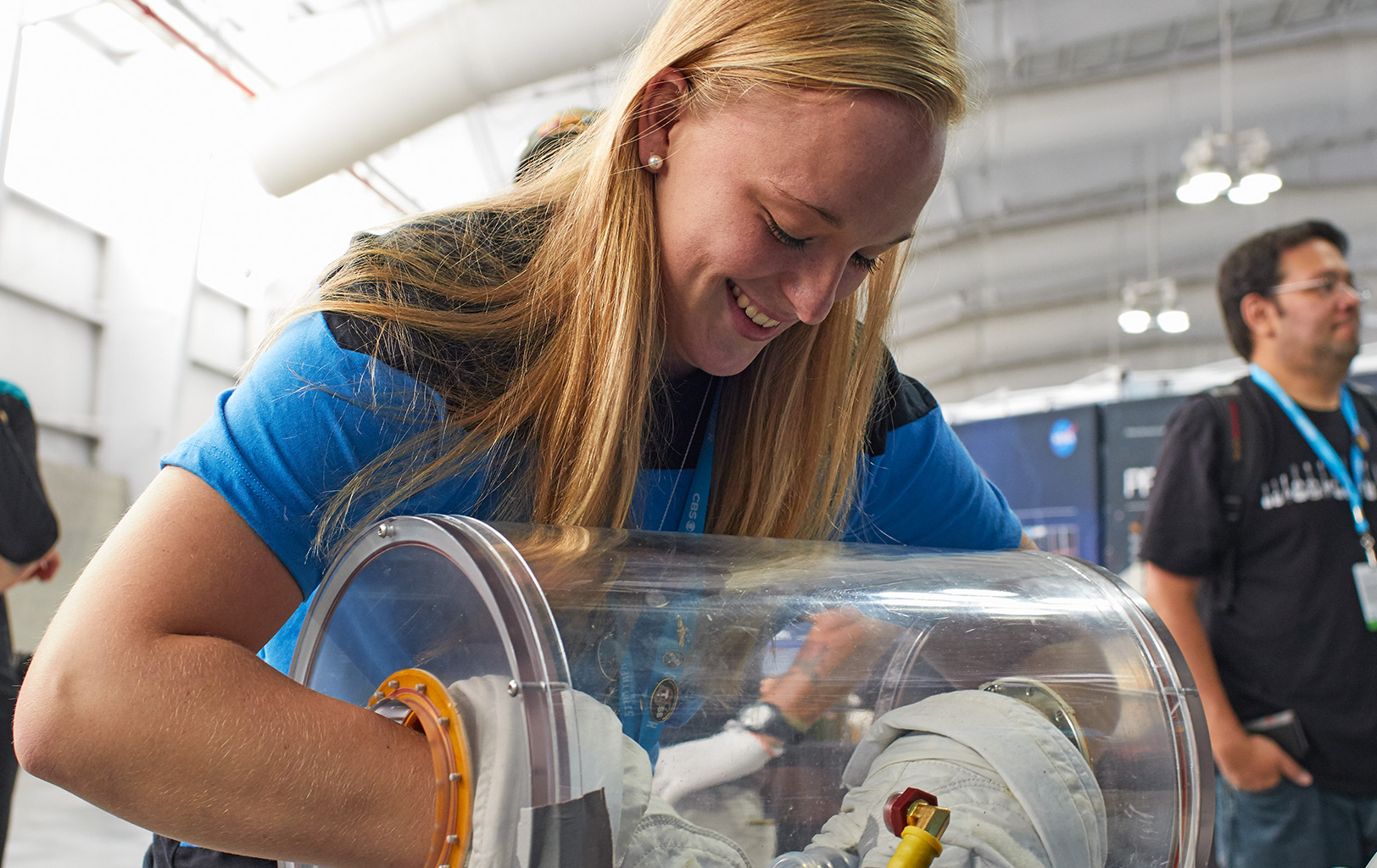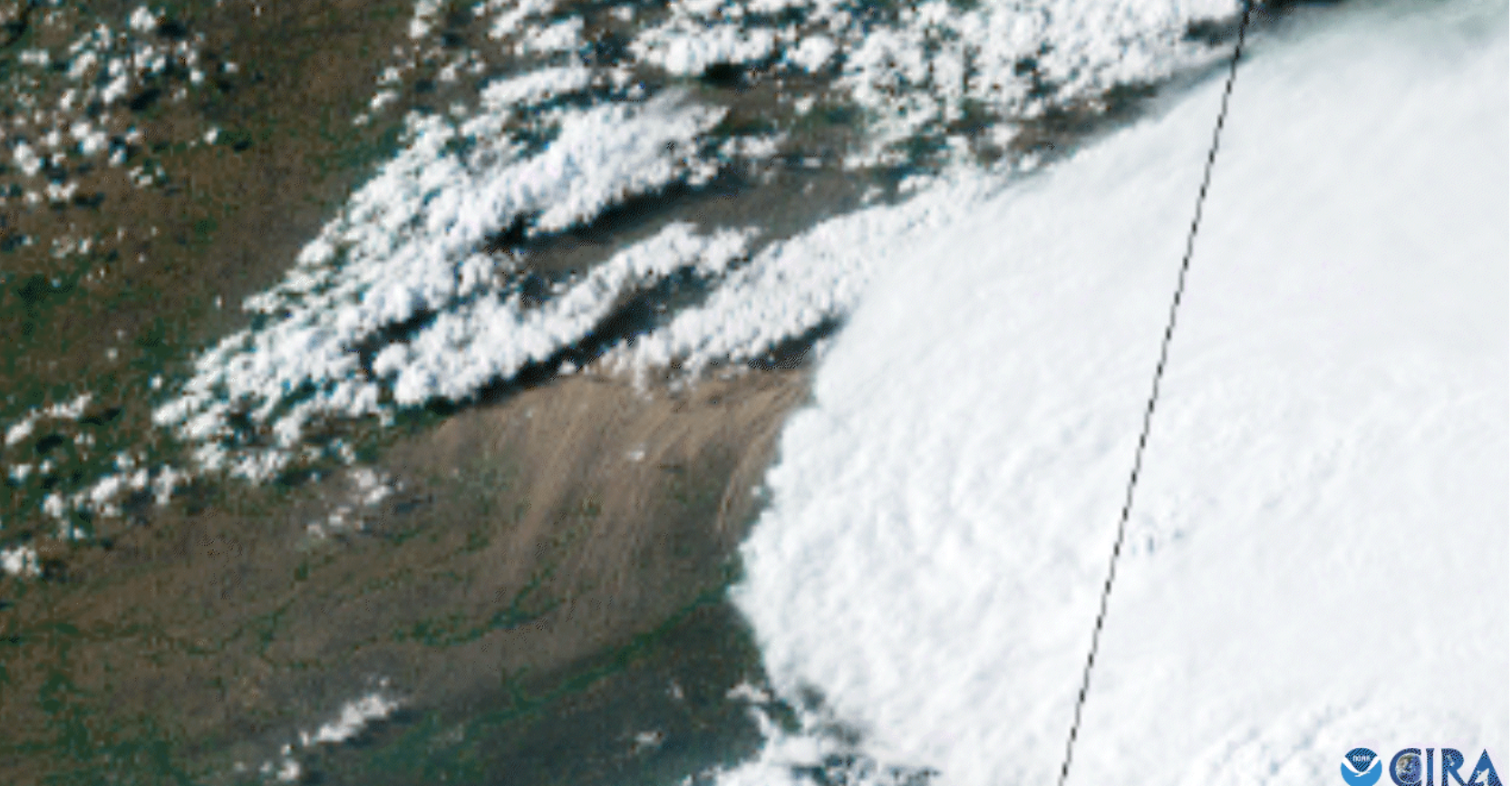Panama, Austria sign Artemis Accords, bringing tally to 50 nations
The two countries joined the Accords during separate signing ceremonies on Dec. 11.

Fifty nations have now joined NASA's effort to establish peaceful and cooperative international space exploration.
On Wednesday (Dec. 11), Panama and Austria signed NASA's Artemis Accords, becoming the 49th and 50th nations to commit to the responsible exploration of space for all humanity, according to a statement from NASA.
"NASA welcomes Panama and Austria to the Artemis Accords community and celebrates 50 countries united by shared principles for the safe and responsible exploration of space," NASA Administrator Bill Nelson said in the statement. "More than ever before, NASA is opening space to more nations and more people for the benefit of all. Together we are building long-term and peaceful deep space exploration for the Artemis Generation."
The Artemis Accords were established in October 2020, with eight original country signatories. Panama and Austria joined the growing list of international partners during separate signing ceremonies at NASA Headquarters in Washington on Dec. 11.
The guiding principles of the Accords focus on peaceful and responsible space exploration, grounded in the Outer Space Treaty of 1967 and other international agreements. The principles reinforce a collective commitment to scientific discovery, innovation and sustainability, setting a standard for future space missions, including NASA's Artemis program, which aims to send astronauts back to the moon for the first time since the Apollo 17 mission in 1972.
"Austria is proud to sign the Artemis Accords, an important step in fostering international cooperation for the civil exploration of the moon and expanding humanity's presence in the cosmos," Petra Schneebauer, Austria's ambassador to the United States, who signed the accords on behalf of her nation, said in the statement.
"By signing the Accords, we reaffirm our commitment to the peaceful, responsible, and cooperative use of space while emphasizing our support for strong multilateral partnerships and scientific progress," Scheenbauer said. "This cooperation will open new prospects for Austrian businesses, scientists and research institutions to engage in pioneering space initiatives."
Get the Space.com Newsletter
Breaking space news, the latest updates on rocket launches, skywatching events and more!

The Accords also set forth a set of recommendations on non-interference, interoperability, release of scientific data and furthering long-term sustainability guidelines on debris management for both lunar orbit and the surface of the moon.
"Today, Panama takes its place among many other nations looking not just to our own horizons, but to the horizons beyond our planet — exploring, learning, and contributing to humanity's collective knowledge," José Miguel Alemán Healy, Panama's ambassador to the United States, who signed on behalf of his country, said in the statement. "This moment represents far more than a diplomatic signature. It is a bold commitment to peaceful exploration, scientific discovery and international collaboration."
Join our Space Forums to keep talking space on the latest missions, night sky and more! And if you have a news tip, correction or comment, let us know at: community@space.com.

Samantha Mathewson joined Space.com as an intern in the summer of 2016. She received a B.A. in Journalism and Environmental Science at the University of New Haven, in Connecticut. Previously, her work has been published in Nature World News. When not writing or reading about science, Samantha enjoys traveling to new places and taking photos! You can follow her on Twitter @Sam_Ashley13.
